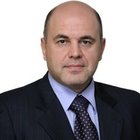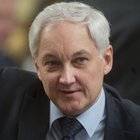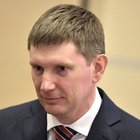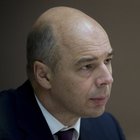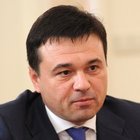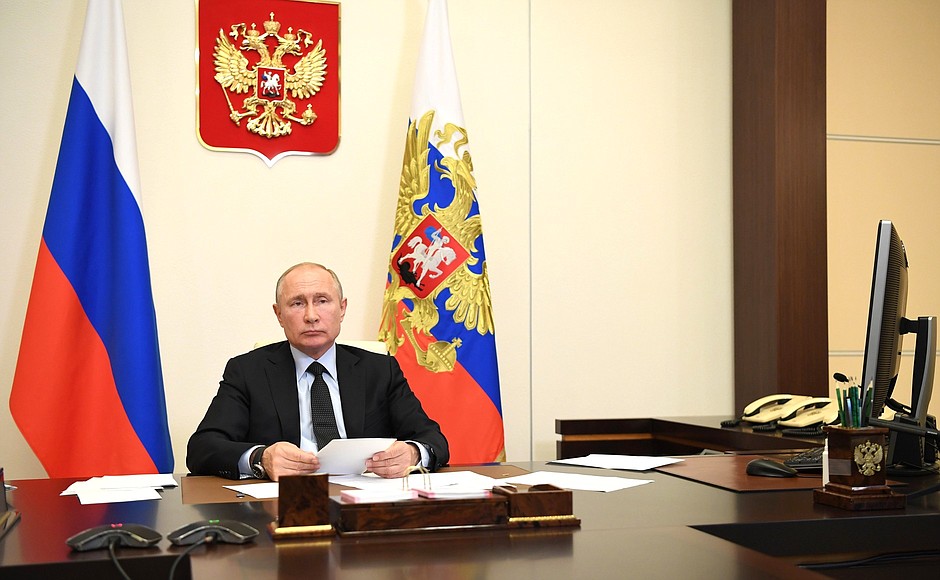
Taking part in the meeting were Prime Minister Mikhail Mishustin, Chief of Staff of the Presidential Executive Office Anton Vaino, First Deputy Prime Minister Andrei Belousov, First Deputy Chief of Staff of the Presidential Executive Office Sergei Kiriyenko, Deputy Prime Minister Dmitry Chernyshenko, Aide to the President Maxim Oreshkin, Minister of Economic Development Maxim Reshetnikov, Minister of Finance Anton Siluanov, Minister of Digital Development, Communications and Mass Media Maksut Shadayev, Moscow Region Governor and Head of the State Council Working Group on Communications, Telecommunications and the Digital Economy Andrei Vorobyov, Deputy Minister of Industry and Trade Oleg Bocharov, Chairman of the Management Board and CEO of Sberbank German Gref and heads of a number of ICT companies.
* * *
President of Russia Vladimir Putin: Colleagues, good afternoon.
Can everyone see and hear me? Excellent.
Today we are going to discuss the developments in the industry that largely defines the speed, style and opportunities of people’s life today as well as prospects of the labour market and the development of cities and territories: telecommunications and information technologies.
In Russia, this sphere has about 60,000 organisations, which achieve important and significant results. Russia is a confident world leader in an entire range of parameters such as the development of mobile and internet coverage. Russian companies are offering reliable software solutions, which can compete both on the domestic and global market.
The industry’s role and importance were especially notable during the forced coronavirus-related restrictions, when many enterprises as well as educational and other organisations switched to online operations, when it was necessary to implement state decisions on support for Russian families and entire economic sectors as quickly as possible, to implement them using the available and user-friendly solutions we have developed jointly. Together, let me repeat this, together we have managed to do all of this, including using advanced information technologies and the infrastructure that has been built by the common effort of the state, businesses and innovative teams.
I would like to thank Russian telecommunications companies and specialists for ensuring the continuous operation and high level of popular services when the load has grown so much.
Let me note that for the communications and IT sector the situation we are currently facing was not only a challenging one. In fact, the companies that sought to satisfy the growing demand offered free services and have ended up in a better position. I remember our meeting when we were only setting out on this journey, and at that time, a number of business leaders promised to offer some services free of charge. They really benefitted from these initiatives and expanded their client base.
Moreover, the restrictions we were compelled to impose motivated many enterprises and organisations to reconsider their usual business processes and become more proactive in introducing digital solutions to improve efficiency. Everyone learned first-hand the importance of being responsive and bold in making use of the far-reaching opportunities offered by digitalisation. This relates to the business world, as well as to government services, education, healthcare and even everyday life.
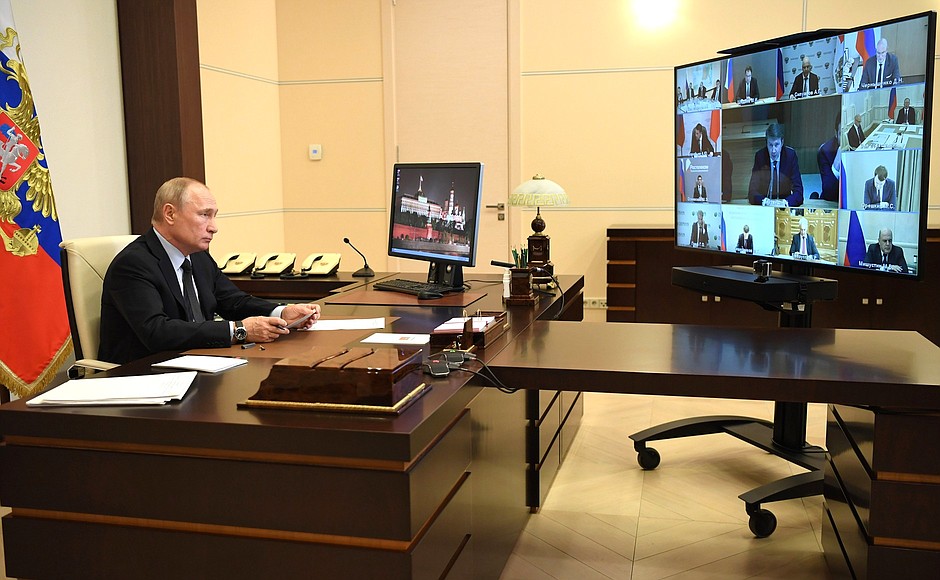
We need to pick up these digitalisation trends and follow the example of the companies at the forefront of this process. Mr Gref is with us here today. We discussed this topic during our meeting yesterday. Of course, Sberbank is among these companies, having de facto evolved into a major player on the IT market. It goes without saying that we need to create conditions for accelerating and introducing Russian communications and IT technology that will lay the groundwork for creating high-quality sought-after goods and services.
Let me remind you that we have already taken a number of landmark decisions aimed at the development of the IT sector, including as part of the Digital Economy national project. I highlighted a whole series of specific instructions in my Address to the Federal Assembly in January 2020. They have to be carried out, all of them. We need to be proactive and forward-looking and remove various barriers inherited from the distant past, while taking into consideration all possible aspects related to ensuring cyber security, and protecting personal rights and freedoms, of course.
At the same time, we need to be aware of the challenges this sector and the economy in general are currently facing, primarily the fact that the real economy had to cut spending on innovation, software and related services. We can see, and the projections show us, that many companies will not have enough resources to shoulder these development programmes due to objective financial and economic constraints.
In this connection, I would like to ask our colleagues in the Government and the regions to give priority attention to supporting the demand for the products of our IT companies, both, and first of all, on the domestic market, and their export products. We should continue to develop and offer additional solutions to ensure the streamlined functioning and the further development of this industry. We are acting likewise in the other industries which we discussed at our meetings, including automobile and aircraft manufacturing, and so on. We must prop up people’s incomes in these industries and create new jobs. I hope to be able to hear some practical recommendations regarding this today.
Of course, the training of skilled personnel is a key condition for the development of the ICT industry. It is professionals and their knowledge and experience that determine the competitiveness of the Russian companies, as well as the market success of Russian products and designs.
All of us are aware that there is a high degree of mobility in the sphere of information technology around the world. However, this does not mean that we must “snatch and hold” professionals, as was the case in the past. On the contrary, we must create transparent, attractive and competitive conditions for working and for implementing forward-looking ideas here in Russia. We must provide benefits to retain our software and communications professionals and help them to realise their potential, as well as attract mature professionals and promising young people from other countries too.
For example, the Digital Breakthrough Contest has been launched by the Russia –Land of Opportunities NGO to identify and promote the development of talented people. Last year it attracted 66,000 participants, who have offered over 1,000 digital solutions for healthcare, education, science, logistics, housing and utilities, and the urban environment.
I would like our businesses, as well as the federal and regional authorities to take note of this project, which is a truly large-scale event, and to make use of its participants’ designs.
In general, I would also like to hear the opinions of our businesses about the additional solutions for the industry, if any are needed, in particular in light of the new reality that is evolving now that the world is emerging from the coronavirus pandemic.
Let us get down to dealing with our agenda.
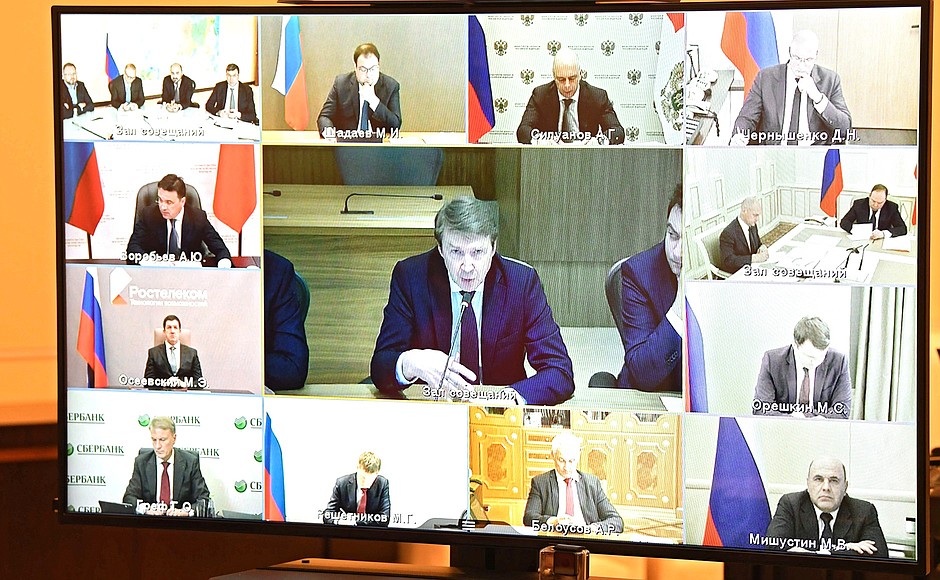
<…>
Vladimir Putin: Friends, colleagues,
Many thanks for this constructive discussion.
The opinion I have gathered from what the Minister, the Prime Minister, the Governor and business representatives have said here is that we are thinking alike; we are even using the same phrases, which shows that we are in agreement on what should be done and how this should be done. There is just one little thing left though, and that is to implement what we have agreed to do. Therefore, I would like to ask our colleagues in the Government to carefully analyse all the proposals that have been made by business representatives today.
Mr Mishustin has said that they will prepare a comprehensive plan of support for the industry. I would like to repeat that all of these proposals should be incorporated in the national plan. It has been agreed with the Prime Minister that we will continue working on the plan during our meetings with the industries to make the necessary amendments. I would like to ask you to do this as quickly as possible and to submit your proposals for our approval.
As I have mentioned already, the goal of these actions is to create globally competitive conditions for the work of our IT professionals in Russia, so that they can realise their creative and entrepreneurial potential here, in our country.
I would also like to sum up the results of this discussion and focus on the measures that require priority attention and particularly active implementation.
First of all, we must work consistently to improve the legal framework, as our colleagues have already said today in different ways and for various reasons, to create conditions for the stable and long-term development of our high-tech companies and enterprises. I would like to ask the Government to prepare proposals on the creation of a highly convenient and, most importantly, competitive management system, including solutions for a comprehensive tax manoeuvre, which has been mentioned today, a manoeuvre that would stimulate the development of our IT industry.
Second, it is necessary to fully eliminate the barriers to launching and supporting promising ICT projects. In this context, I would like to ask the Government and the State Duma to speed up the development and adoption of the federal law on experimental legal modes: so-called regulatory sandboxes (I think someone has already mentioned them today), when prospective solutions such as (this has already been mentioned) self-driving transport or artificial intelligence in medicine are tested in practice in compliance with all the safety rules and requirements. Let me repeat that, of course, this should be under strict oversight, but still provide space for experiments. Of course, there should be control, but also the freedom of action for our colleagues. How else can we break new ground? It would be impossible.
Let me also remind you that last year we approved a long-term AI development strategy. We need a calculated step-by-step action plan to implement it. I know that the Government is developing a separate federal project on this, and I would like to ask them to step up this work to approve the project and launch it as soon as possible.
Third, today we have received specific proposals from industry representatives, as I have said. I have also said that all of them must be examined by the Government, including the one on preferential access to electricity for data processing centres. I believe the head of Rostelecom has requested this. This decision would allow businesses to save money, which means they would make their services more affordable for people.
Friends, let me once again thank you for the substantive conversation. I wish you success and hope that we will proceed in the required direction, at the required pace in order to achieve the success that interests us all: businesses, the state and, most importantly, our people.
Thank you very much.
